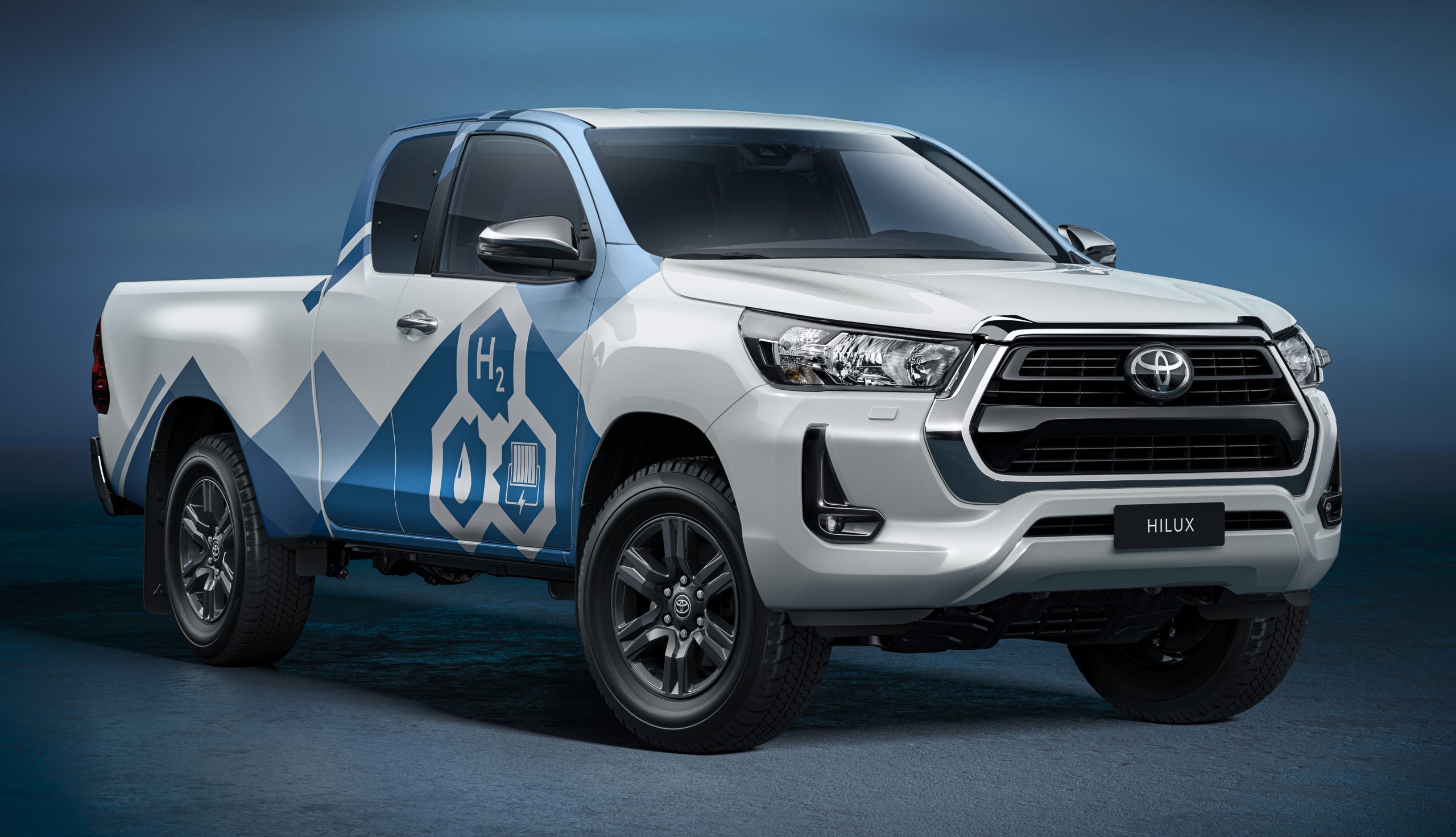Toyota has received government backing to produce a prototype hydrogen-powered Hilux that will begin testing next year.
A hydrogen-powered Toyota Hilux prototype will be built as part of a £70 million (AUD$127m) UK government drive to find alternative zero-emission vehicles for isolated areas.
The fuel cell version of Hilux – which is normally fitted with a 2.4-litre diesel turbo engine – will be created as a prototype using components from Toyota’s second-generation fuel cell system, as featured in the latest Toyota Mirai sedan.
If successful, it is hoped the Hilux can be used for commercial operations in remote areas where electric vehicle charging is impractical.
Initial prototypes will be built at Toyota’s vehicle plant in Burnaston, UK during 2023 – which also produces the Toyota Corolla – with testing to follow soon after. A small series production will follow.
“The project is an exciting opportunity to investigate a further application of Toyota’s fuel cell technology in a vehicle segment that is key to a number of industry groups and will help support the sector’s move towards decarbonisation,” the car maker said in a statement.
Toyota Motor Manufacturing UK (TMUK) will lead the project alongside UK-based technical engineering firms Ricardo, ETL, D2H and Thatcham Research. Toyota’s European research and development team will also aid the move and help it to become self-sufficient, the car maker said.
In total, the programme has received £11.3 million (AUD$20.5m) from the pot, which will fund the project for three years and support more than 250 jobs across the UK over the next decade. It joins other projects including a farm-waste-powered tractor and hydrogen-powered HGV cabs.
Richard Kenworthy, TMUK managing director, said: “The opportunity that this funding enables is significant and goes towards developing the technical capabilities not only of our employees here at our site in Burnaston in the East Midlands but also of those within the wider consortium partners.
“This region is heavily committed to supporting zero-emissions mobility and we see this project as a great opportunity to contribute to the critical path on the road to carbon-zero mobility. This UK government funding will enable teams within the consortium to acquire key skills that can then be used to investigate other fuel cell applications.”
Matt Harrison, Toyota Motor Europe president and CEO, added: “This funding represents a tremendous opportunity to develop a zero-emission solution in a critical market segment.”
The government says the five successful projects are set to support 3300 jobs across the UK, working on new ways to harness renewable fuels, electric motors that are both powerful and highly efficient, and new materials that will reduce the motor industry’s carbon footprint.
Business secretary Grant Shapps said: “Our automotive industry is a world leader, creating jobs whether in Essex, Somerset or Glasgow. Seizing the potential from new technologies will be a key part of its future success, while also making our roads cleaner, greener and more affordable.
“Today’s multi-million-pound boost – created by the government working hand in hand with industry – will put these firms in pole position to pioneer these innovations, staying at the cutting edge of the global race for decades to come.”
Felix Page




